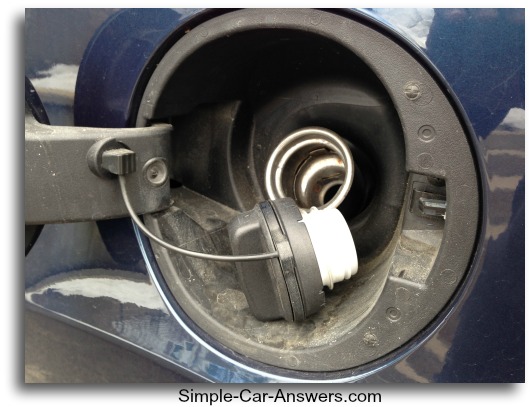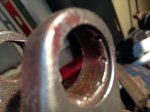This Site Was Built With You In Mind!
Your Honda Check Engine Light is On and You Have a DTC P1456, Here's How to Fix It!
by Eddie Carrara
|
The most common cause of a Honda check engine light being on is a DTC P1456, and a loose or missing gas cap usually causes the problem. The loose gas cap isn't the only reason, though. A leak on the evaporative system's tank side causes the code or DTC 1456 to display in the computer's data list. It could also mean a leak in the fuel tank or one of the tubes or hoses. |
What to Do if the Check Engine
Light
Comes on After Refueling
|
So if your Honda check engine light comes on after refueling your vehicle, the first thing you should check is the gas cap. Check to see if it's missing; if it's not missing, make sure the gas cap is tight by making sure it clicks three times after it has stopped turning. Once you have checked the gas cap condition, the vehicle has to run through two driving cycles and two complete tests on the evaporative system before the light will go out on its own. If the vehicle passes both tests, the check engine light will go off, and the DTC P1456 clears until the next fault occurs. |
  |
Evaporative System Tests and Drive Cycles
A drive cycle is when the engine is stone cold, and then it runs until it reaches operating temperature; this is considered one driving cycle. During the drive cycle, the vehicle computer will perform a test on the evaporative system. The computer will pull a vacuum on the fuel tank and monitor the voltage via the fuel tank pressure sensor. If the tank loses vacuum during the test, the computer senses the leak by a voltage drop at the FTP sensor and turns on the check engine light. The evaporative system has to pass two of these tests with no leaks before the vehicle computer shuts off the check engine light. Clearing the codes manually using a scan tool is another alternative, but it's not necessary.
What if the Check Engine Light Never Goes Out?
If your Honda check engine light never goes out and the gas cap is in place and tight, you will most likely have other issues or a faulty gas cap. I recommend finding an automotive shop or dealership with the equipment to properly diagnose the problem, not just pull a code and guess at the cause. Honda dealers have diagnostic tools to check the emission system; these diagnostic tools can run the evaporative test with the scan tool without going through the drive cycles.
Having the right mechanic doing the job can save you time and money. Having the right tools for the mechanic is critical, and most small shops will not spend the money on sophisticated tools. Dealerships have to spend the money because they are forced to by the manufacturer. The hourly rate at a dealership may be greater than a small shop, but it's because they have the right tools and the proper information to fix your vehicle, but you still need to get the right mechanic.
If you have questions about your check engine light, please don't hesitate to ask in the Facebook comment box or the other comment box. I answer all questions :)
What's Inside a Honda Canister
|
How to Test A Honda Canister Vent Shut Valve
1999 Honda Accord v6 P1457 Code Fix
comments powered by DisqusIf you would like to leave the Honda Check Engine Light Page and return to Simple Car Answers home page, click this link.

New! Comments
Do you have a question about your car? Leave me a comment in the box below, I bet I can answer your question better than your mechanic.